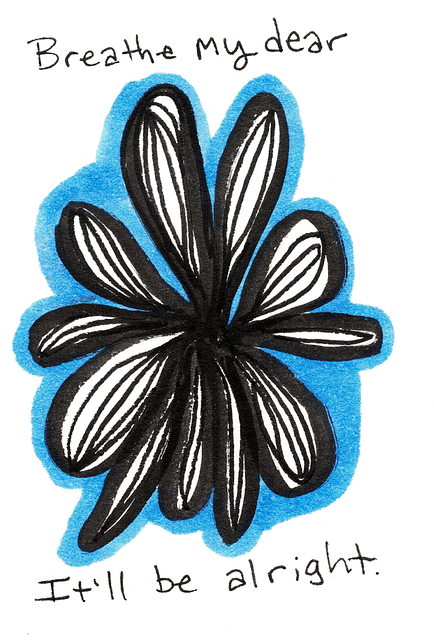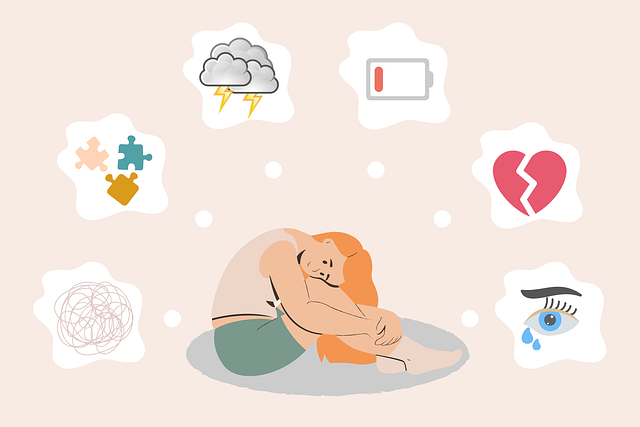Parker Self-Esteem Therapy (PST) offers a holistic approach to improving mental well-being by focusing on developing essential social interaction skills for those managing anxiety or depression. Through combining cognitive-behavioral techniques, mindfulness practices, and engaging activities like podcasting, PST helps individuals strengthen relationships, boost confidence, and improve their overall mental wellness. Group therapy sessions create supportive environments where participants gain insights, develop personalized coping strategies, and challenge negative thoughts, ultimately fostering lasting social connections and emotional healing.
Social skills training is a powerful tool for managing mental health conditions, fostering connections, and improving overall well-being. This comprehensive guide explores how understanding social dynamics can positively impact mental health, with a particular focus on the innovative Parker Self-Esteem Therapy. We delve into effective strategies for enhancing social interactions in various settings and highlight the transformative power of group therapy and peer support in building resilience.
- Understanding Social Skills and Their Impact on Mental Health
- The Role of Self-Esteem in Social Interactions
- Parker Self-Esteem Therapy: An Innovative Approach
- Strategies for Improving Social Skills in Different Settings
- Building Resilience Through Group Therapy and Peer Support
Understanding Social Skills and Their Impact on Mental Health

Social skills are a cornerstone of human interaction and play a pivotal role in our mental health and overall well-being. They encompass a range of abilities, from initiating conversations to maintaining eye contact, active listening, and appropriate non-verbal cues. These skills facilitate meaningful connections with others, foster a sense of belonging, and contribute significantly to our self-esteem and confidence.
For individuals navigating mental health conditions, understanding and developing social skills can be transformative. Conditions like anxiety or depression often impact social interactions, leading to feelings of isolation. Parker Self-Esteem Therapy, for instance, focuses on empowering individuals to enhance their social skills as a holistic approach to mood management. By learning effective communication strategies, practicing self-care routine development for better mental health, and engaging in activities that promote mental wellness, such as the production of a podcast series dedicated to these topics, people can improve their relationships, boost their confidence, and contribute to their overall mental wellness.
The Role of Self-Esteem in Social Interactions

Self-esteem plays a pivotal role in shaping our social interactions and overall mental health journey. For individuals navigating mental health conditions, building and maintaining healthy self-esteem is essential for successful social engagement. Parker Self-Esteem Therapy recognizes this connection and offers valuable tools to enhance self-perception, fostering more positive relationships and improved coping skills.
Through therapeutic techniques, individuals can learn to challenge negative self-talk, set realistic goals, and develop a sense of personal worth. This process is particularly beneficial for those struggling with anxiety or depression, as it empowers them to navigate social situations with increased confidence. Incorporating activities like journaling prompts from the Mental Wellness Journaling Exercise Guidance or insightful discussions in a Mental Wellness Podcast Series Production can further support the development of coping skills and promote mental wellness.
Parker Self-Esteem Therapy: An Innovative Approach

Parker Self-Esteem Therapy (PST) is an innovative approach that focuses on enhancing individuals’ self-perception and overall mental well-being. This therapy method emphasizes the profound impact of positive self-esteem on managing various mental health conditions. PST encourages clients to challenge negative thought patterns, fostering a more realistic and optimistic outlook on life. By combining cognitive-behavioral techniques with mindfulness practices, it equips individuals with effective tools for emotional regulation.
This approach is particularly beneficial for those struggling with low self-worth, anxiety, or depression, offering a holistic strategy that goes beyond symptom management. In the context of risk management planning for mental health professionals, PST can be a valuable addition to treatment protocols. It teaches clients stress reduction methods and helps them develop resilience, which are essential components in mitigating potential risks associated with mental health disorders.
Strategies for Improving Social Skills in Different Settings

Improving social skills is a multifaceted process that can significantly benefit individuals with mental health conditions. In Parker Self-Esteem Therapy, for instance, therapists often employ tailored strategies to enhance social interactions in various settings. For those struggling with depression, fostering meaningful connections can be transformative. A simple start might involve engaging in regular social activities, such as joining a support group or participating in community events. This helps build confidence and provides opportunities to practice communication skills.
In academic or professional environments, role-playing exercises can be effective tools. These simulations allow individuals to navigate different social scenarios, learn appropriate responses, and gain a deeper understanding of nonverbal cues. Additionally, cultivating a Self-Care Routine Development for Better Mental Health can indirectly enhance social skills by boosting overall well-being. Crisis intervention guidance is also crucial; teaching individuals how to recognize and manage distressing situations can facilitate smoother interactions and promote positive relationships.
Building Resilience Through Group Therapy and Peer Support

Building resilience is a cornerstone of managing mental health conditions, and group therapy sessions provide an ideal environment for this. Through shared experiences and open dialogue, individuals can learn from one another, fostering a sense of belonging and empowerment. In these supportive settings, participants can develop coping strategies tailored to their unique challenges. For instance, Parker Self-Esteem Therapy encourages clients to challenge negative thoughts and behaviors, boosting self-worth and resilience over time.
Peer support plays a crucial role in this process. Emotional healing processes are accelerated when individuals see others facing similar struggles and successfully navigating them. Group members can offer encouragement, perspective, and practical advice, strengthening social connections and encouraging positive interactions. Additionally, these peer networks extend beyond the therapy room, providing ongoing support as individuals work towards enhancing their mental wellness coaching programs development and building lasting confidence.
Social skills training, especially innovative approaches like Parker Self-Esteem Therapy, plays a pivotal role in managing mental health conditions. By addressing self-esteem and providing strategies for various settings, individuals can improve their interactions and build resilience through group therapy and peer support. Incorporating these techniques into treatment plans can significantly enhance the overall well-being of those facing mental health challenges. In particular, Parker Self-Esteem Therapy stands out as a game-changer in this domain, offering unique insights and effective tools for navigating social scenarios.














